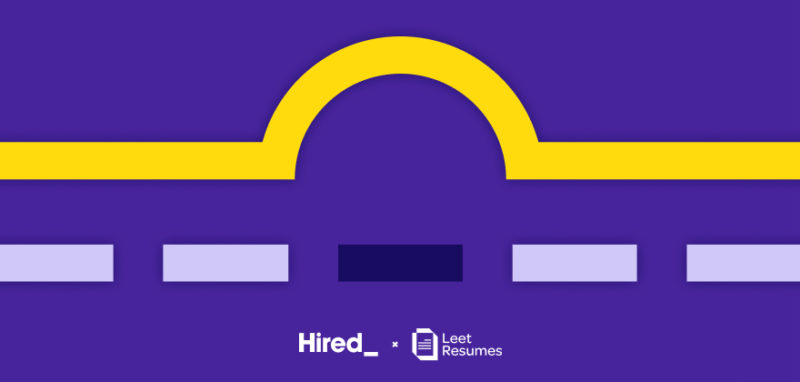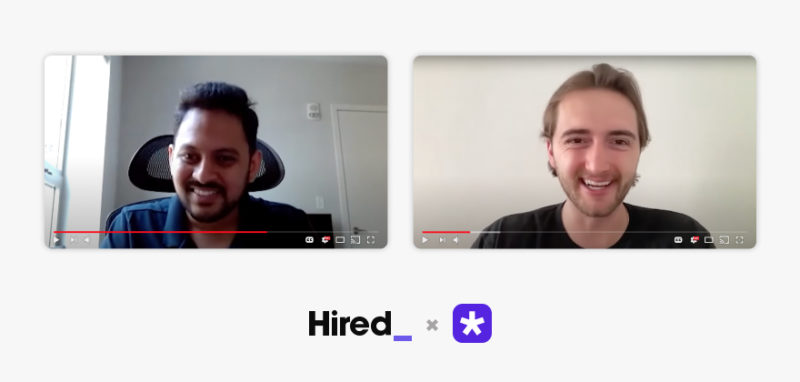
3 Keys to Write a Software Engineering CV or Resume in 2023
Whether you’re starting to look for new opportunities or just want to get your CV or resume in shape, it can be difficult to know how to best portray a software skillset on a single piece of paper. This article will provide general CV-writing best practices, as well as specific strategies to highlight your software engineering expertise.
1. Keep it clean and simpleThis applies to CVs for all jobs, but it’s worth remembering that recruiters and hiring managers generally don’t have the time nor the energy to sift through multiple pages, opaque wording, or confusing formatting.
First of all, be sure to keep your CV to a single page. Even if you have many experiences that seem worth sharing, you’re better off choosing the most important, relevant ones (and including more details about them) rather than trying to squeeze everything in, but losing the important details of your most impressive achievements.
One way to keep it short is to use concise, straightforward language rather than flowery descriptions. Once you’ve written a draft, go through and think critically about each bullet point: Ask yourself whether there’s a way to say the same thing in fewer words, or to make it punchier with more action-oriented words. It can also be helpful to have a friend, colleague, or mentor read it over for a second opinion.
Lastly, keep the formatting clean by using section headers and consistent fonts/font sizes. Must-have sections include education, employment, and skills (where you can list your proficiency with various programming languages); Others might include personal projects, awards, certifications, or interests.
2. Tailor it to the roleWhether you’re applying to a very specific role or applying more broadly, be sure to tailor your CV accordingly. If there are a few types of roles you’re considering, it might be worth keeping a different version for each.
Some people prefer to keep a “master” CV with all of their experiences listed (this might exceed the one-page limit), which can be trimmed down based on which skills a role requires and how your background fits into that profile. Others may keep a few versions of their CV ready to go depending on which best fits a job they’re applying for.
Whatever your strategy, don’t underestimate the importance of what you do and don’t include on a CV you submit to a job posting: Even if you have the most relevant experience, if it doesn’t come through on your CV then the hiring team won’t know what a good fit you might be. Further, including more relevant jobs or projects may increase your chances of talking about them in the interview, as interviewers often use the candidate’s CV to guide the conversation.
3. Show off your software experienceUnlike many other careers, software engineers’ work (e.g. tools, apps, websites, etc.) can often be publicly viewed. When it comes to CV writing, this is a huge plus, as it gives you the chance to show, rather than tell, what you’ve done.
Some engineers like to include a ‘Projects’ section, particularly if they’re earlier on in their careers but have undertaken personal projects to boost their skills or to explore an area of interest. Even if the work is incomplete or the projects are small, this section can also demonstrate your passion for engineering as it will indicate you’ve taken on this work outside of your day job.
You might also include links to online portfolios such as GitHub or StackOverflow, which can give the hiring team clear evidence of which skills you bring to the table. If you have a personal website with links to various projects, this can be a way of keeping your word count down while still showcasing all of your work.
At the end of the day, your CV is only one small piece of the candidate profile that a company will assemble in the process of interviewing you—but it’s an important one as it’s often the first impression a hiring team will have of you. Spending time to tinker with and tailor your CV may seem mundane, but it’ll certainly be worth the effort if it helps you make it past the initial screening process.
Additional Resources to help write your tech resume or engineering CVOriginally written in 2019, this blog was updated by the Hired content team in 2023.
Related blog posts

How to Answer “Tell Me About Yourself” Interview Question for Tech Talent
How to ace the number one question in interviews for tech roles, like software engineers –...

How to Handle an Employment Gap on Your Resume (Flip the Script!)
You’re not your work history Addressing an employment gap on a resume is one of the most...

Interviewing After a Layoff? How to Be Confident & Become a Top Candidate
The third article in our series to help jobseekers bounce back better than ever… Once you’ve...

Write an ATS Friendly Resume in 2023: 6 Tips to Reach Recruiters
As a tech (or any!) jobseeker, it’s crucial to have an ATS-friendly resume in today’s job...

Code Your Career: Staying Competitive in the Developer Job Market (VIDEO)
The world, especially within the tech industry, is changing faster than you realize. Many...

Engineering Manager or IC? Which Tech Career is Best for Me? (Video)
Have you ever wondered whether to follow an Individual Contributor (IC) path or an Engineering...

